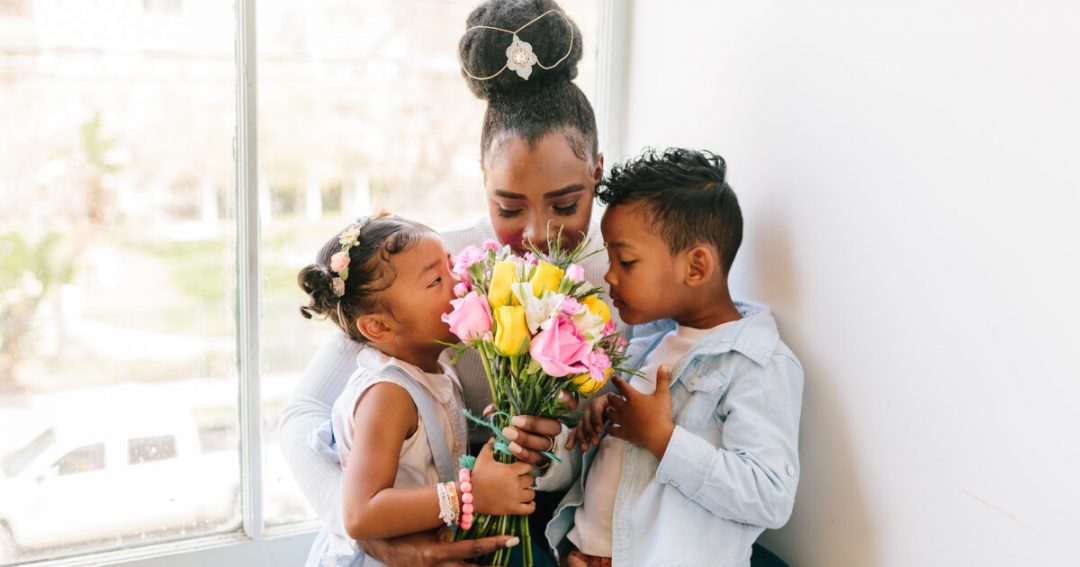Everyone should be able to enjoy flowers. However, some allergy sufferers risk itchy eyes, runny noses, and scratchy throats each time they bring a bouquet home. Fortunately, you don’t have to choose between beautiful blooms and symptom-free days!
There are many hypoallergenic flowers that just about anyone can enjoy in peace. So whether you’re looking for a bouquet for your home, planning an allergy-free wedding, or want to send flowers to your sniffly friend, keep these friendly flowers in mind.
Flowers for People with Allergies
If you’re looking for blooms that limit sniffles, stuffy noses, and sneezes, check out these hypoallergenic flowers. Some of these flowers lack pollen completely, some have pollen that’s easy to remove, and others have large pollen grains that rarely cause allergies.
Lilies
When you mention hypoallergenic flowers, some people may not think of lilies. That’s because many of these flowers contain large, pollen-coated stamens. While this pollen can cause symptoms like itchy eyes and runny noses, the large size of the stamens makes them easy to remove. Simply snip out the stamens before displaying the flowers in your home or office.
You can also find some pollen-free, hybrid lilies perfect for allergy sufferers.
Hydrangeas
The hydrangea is one of our favorite allergy-friendly flowers. Although the large flowers contain many florets, their sticky pollen rarely creates issues. Bees and butterflies have no problem moving the sap-like pollen between flowers, but the sticky substance doesn’t blow into the air and cause allergy symptoms.
Hydrangeas come in various colors and bloom configurations, so you have options.
Look for the flat, lacy blooms of lacecap and oakleaf hydrangeas, enjoy the cloud-like blooms of smooth hydrangeas, or make a statement with the large pyramidal blooms of panicle hydrangeas.
Orchids
Orchids are great flowers for people with allergies. The delicate flowers have a pollen that resembles a sticky powder, so it’ll take more than a gentle breeze to push the pollen into the air. Instead, orchid pollen just sits there, waiting for a pollinator like a bee to come and take it away.
In the meantime, the pollen remains intact, concealed inside tiny pollen pouches. While orchids can be challenging to care for, their ability to hang onto their pollen makes it worth the extra effort. And if you don’t want to venture into the world of orchid care, look for bouquets that contain these unique flowers.
Tulips
Since tulips contain pollen, it’s possible to be allergic to these popular flowers. However, few people face issues when they’re around these iconic springtime blooms. That’s because the heavy pollen remains stuck on the stamens until a pollinator arrives to take it away.
If you’re still concerned about the tulip’s pollen, you can easily remove the stamens before bringing the flowers inside. Use a sharp pair of scissors or a knife to snip the stamens and dispose of them before displaying the flowers indoors.
Roses
Roses are definitely at the top of our list of hypoallergenic flowers. They’re easy to find, come in many colors, and have variable flower shapes and sizes. Just look at the difference between a hot pink hybrid tea rose and a cream-colored heirloom garden rose!
If you’re an allergy sufferer, you can feel good about planting roses in your garden or bringing a rose bouquet into your home. Roses are generally low in pollen, and the pollen they contain consists of large grains. However, you should pay attention to rose scent since heavily fragrant varieties can cause headaches and other unwelcome symptoms.
Roses also have uses besides looking beautiful! You can learn how to dry your flowers and then turn the dried roses into products like flower confetti, potpourri, and rose sugar. Or, just dry the bouquet and save it to remember special events like weddings and anniversaries.
Daffodils
Daffodils are considered allergy-friendly since their showy flowers are generally pollinated by insects rather than the wind. Daffodils contain minimal pollen, so you’ll unlikely deal with symptoms like red eyes and an itchy throat.
That said, you should be careful about handling the flowers with bare hands. Touching the daffodil sap can cause contact dermatitis and result in red, itchy skin.
Flowers People with Allergies Should Avoid
Knowing which flowers to avoid is just as helpful as knowing what flowers are hypoallergenic. Technically, any flower that contains pollen can cause allergy symptoms. However, blooms that contain lots of tiny pollen that’s easily airborne are the worst flowers for allergies.
If you are prone to hay fever, it’s best to avoid the following flowers.
- Asters
- Chamomile
- Chrysanthemums
- Daisies
- Sunflowers
Order Flowers for Everyone in Your Life
Regardless of your allergies, there’s a flower for you. Now that you know which flowers are safe for allergy sufferers and which can cause problems, you can order flowers online without worrying about whether they’ll cause swollen eyes, stuffy noses, and itchy throats.
When you order flowers from The Bouqs, you can also rest easy knowing that your flowers were grown and handled with care. We source blooms from sustainable-minded farms and then ship them directly to their end destination. Since they skip sitting in a warehouse, they will remain beautiful and fresh days after they arrive.
Shop All



